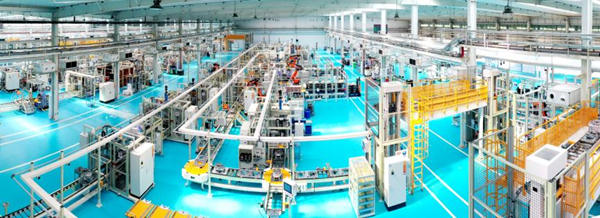China's automotive industry is making strides towards smarter and more eco-friendly development. Chongqing Tsingshan Industrial Co., Ltd., a subsidiary of China South Industries Group Co., Ltd., is at the forefront of this shift.
It is focusing on digital transformation and offering reliable solutions for new energy vehicles (NEVs).
The company, which specializes in the research and development, production, and sale of automotive transmission systems, has been recognized as a national-level technological innovation demonstration enterprise and a green factory.
It has made significant breakthroughs in hydraulic modules, wet dual-clutch transmission (DCT), DCT control software, and DCT integration solutions for homegrown automotive transmission systems.
The company's self-developed P2 dedicated hybrid transmission was awarded one of the "World's Top 10 Dedicated Hybrid Transmissions" in 2023, after its 7-speed wet dual-clutch automatic transmission was named one of the "World's Top 10 Transmissions" in 2020.
In recent years, Chongqing Tsingshan Industrial Co., Ltd. has intensified efforts to improve its digital management and smart manufacturing. It has created 5G-aided, data-driven online platforms for asset management and supply chain collaboration, covering design, manufacturing, quality management, sales, and logistics, to enhance efficiency.
According to the company, the use of 172 industrial robots at its factories has resulted in a 30.19 percent increase in production efficiency, a 15.88 percent reduction in operating costs, and a 13.60 percent reduction in energy consumption.

A view of a digital factory of Chongqing Tsingshan Industrial Co., Ltd. [Photo provided by Chongqing Tsingshan Industrial Co., Ltd.]
The company has achieved an automation rate of 67 percent for its DCT production lines and 45 percent for its NEV transmission production lines.
As the demand for NEVs in China continues to surge, Chongqing Tsingshan Industrial Co., Ltd. is seeing an increasing percentage of sales for its NEV transmission products.
In 2022, the sale of these products accounted for 29.5 percent of total sales, and the company expects this number to rise to 80 percent by 2030.
(Executive editor: Wang Ruoting)